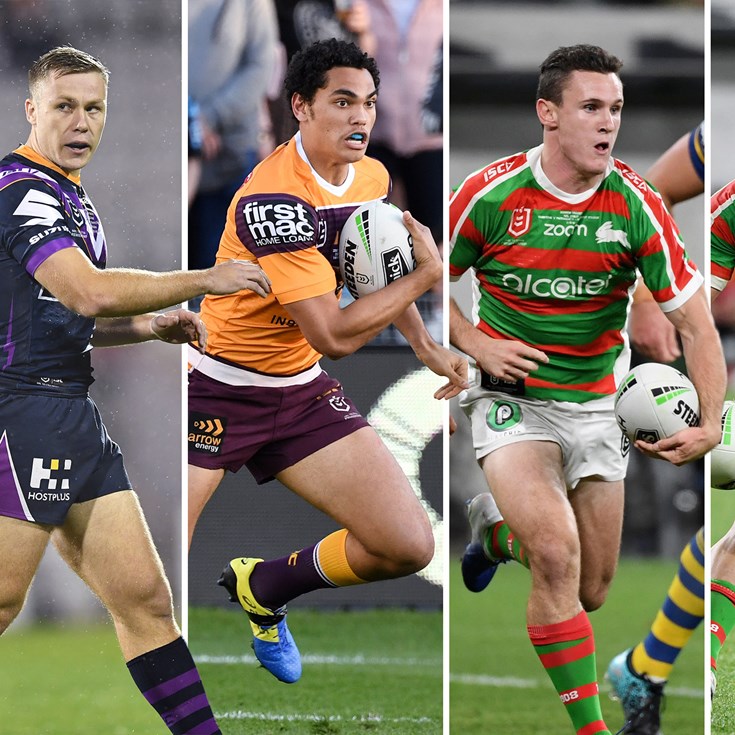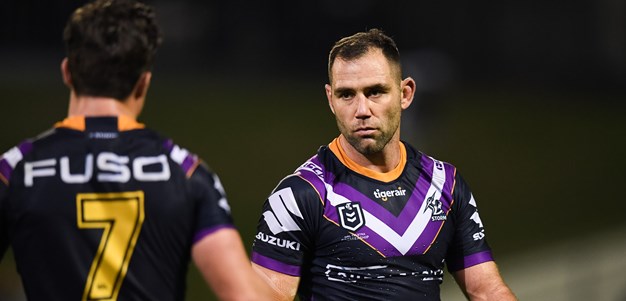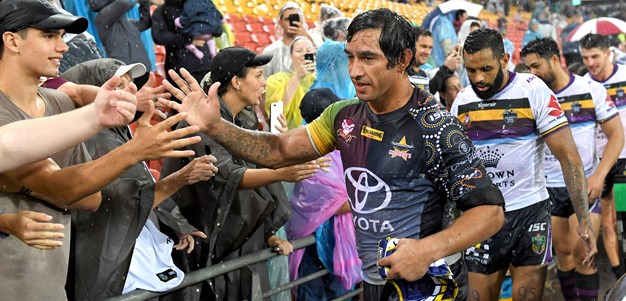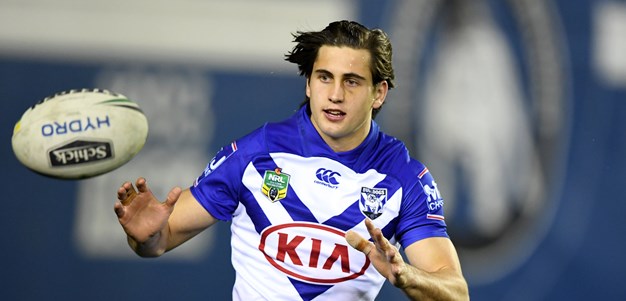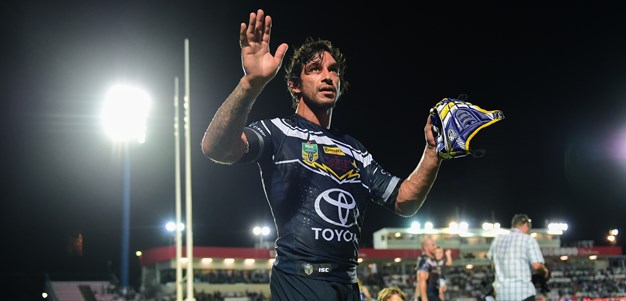Who will be the first big domino to fall?
That's a question many in the game are asking as dozens of players - including some of the game's biggest names - remain unsigned on the eve of the November 1 deadline for NRL clubs to finalise their initial 24-man rosters ahead of the commencement of pre-season training.
Cameron Smith, John Sutton, Jarryd Hayne, Corey Oates, Tavita Pangai jnr, Matt Lodge and James Segayaro all face the prospect of not having a contract registered before their current clubs return to training and there are many other players in the same position.
After the unprecedented player movement of last off-season, the transfer market appears to have become gridlocked but agents and recruitment managers believe that if one big name star makes a move, there will be a domino effect.
There had been speculation that Manly prop Martin Taupau would move to Melbourne, who would then release Sam Kasiano - possibly to Newcastle as the Knights had made an approach to Pangai jnr so are in the market for a front-rower - but Des Hasler’s return to Brookvale is expected to close the door on that scenario.
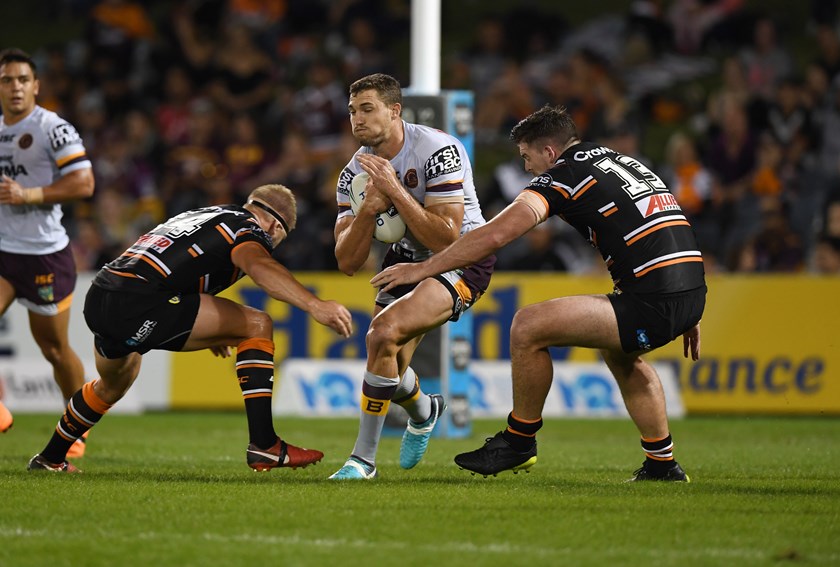
The Sea Eagles now have a coach to make decisions but uncertainty over who will be in charge at up to four other clubs is one factor being blamed for players delaying committing their futures, with Wests Tigers mentor Ivan Cleary tipped to sign with Penrith from 2021 onwards and South Sydney's Anthony Seibold linked to Brisbane from 2020.
However, there are other reasons so many players remain unsigned, including the introduction of the 30-man NRL roster this season and the abolishment of the second-tier salary cap.
The transfer market appears to have become gridlocked
Previously, a club wanting to shift another player would offer to pay some of his contract money to make it more attractive for rival clubs to sign him and they could put that top-up payment in the second-tier cap.
For example, if a player was on $160,000 and his current club contributed $60,000 towards his deal with a new club they could include that amount in the second-tier cap provided it was less than the contract value of the lowest paid player in their NRL squad.
However, if the $60,000 payment is included in the NRL salary cap and the club has to sign a replacement in their top 30 roster then it may no longer be worthwhile as the minimum wage in 2019 for players 1-26 is $105,000 and $72,500 for players 27-30.
All clubs need to have lodged contracts for the first 24 players in their top 30 for 2019 by November 1. The clubs then have until March 1 to finalise a list of 29 players, with the remaining spot to be filled by June 30.
It has become a juggling act as many clubs locked in most of their star players on long-term deals after the new $1.8 billion broadcast deal and increased $9.1 million salary cap for last season, but with a change in coach or a less successful season than they had hoped some are looking to reshape their 2019 rosters.
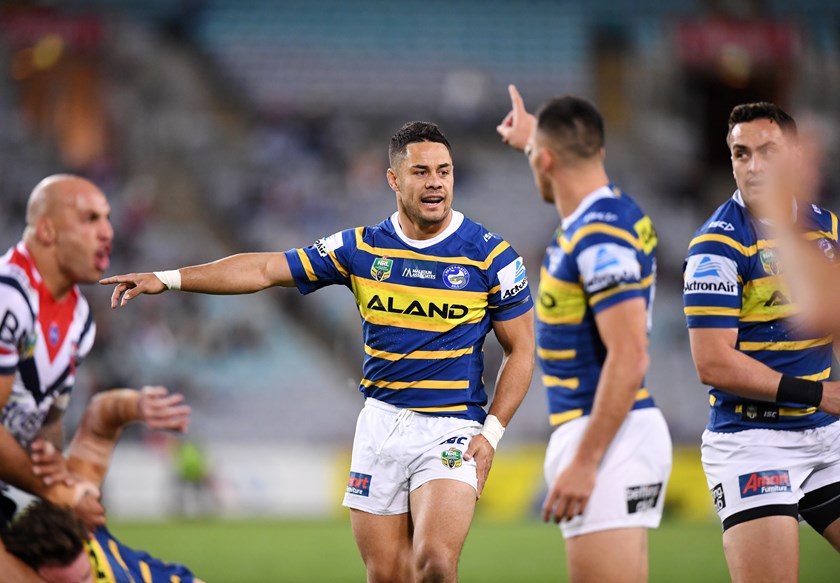
Wests Tigers recently announced they had finalised 28 of their top 30 rosters for next season, while North Queensland also have only two spots remaining.
However, other clubs are looking to shed players so they can make new signings and there is a belief among some that the massive shake-up of last summer could become an annual event that would be best confined to an official trade window.
In the meantime, Canberra, Canterbury, Parramatta, Wests Tigers and the Warriors are all due to start pre-season training on Thursday with their 2019 rosters still be finalised and Gold Coast, Manly, North Queensland, Newcastle and Brisbane will return the following week.
The views in this article do not necessarily express the opinions of the NRL, ARLC, NRL clubs or state associations.


